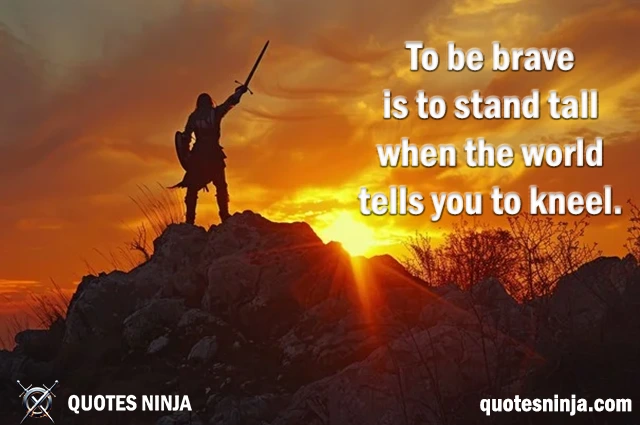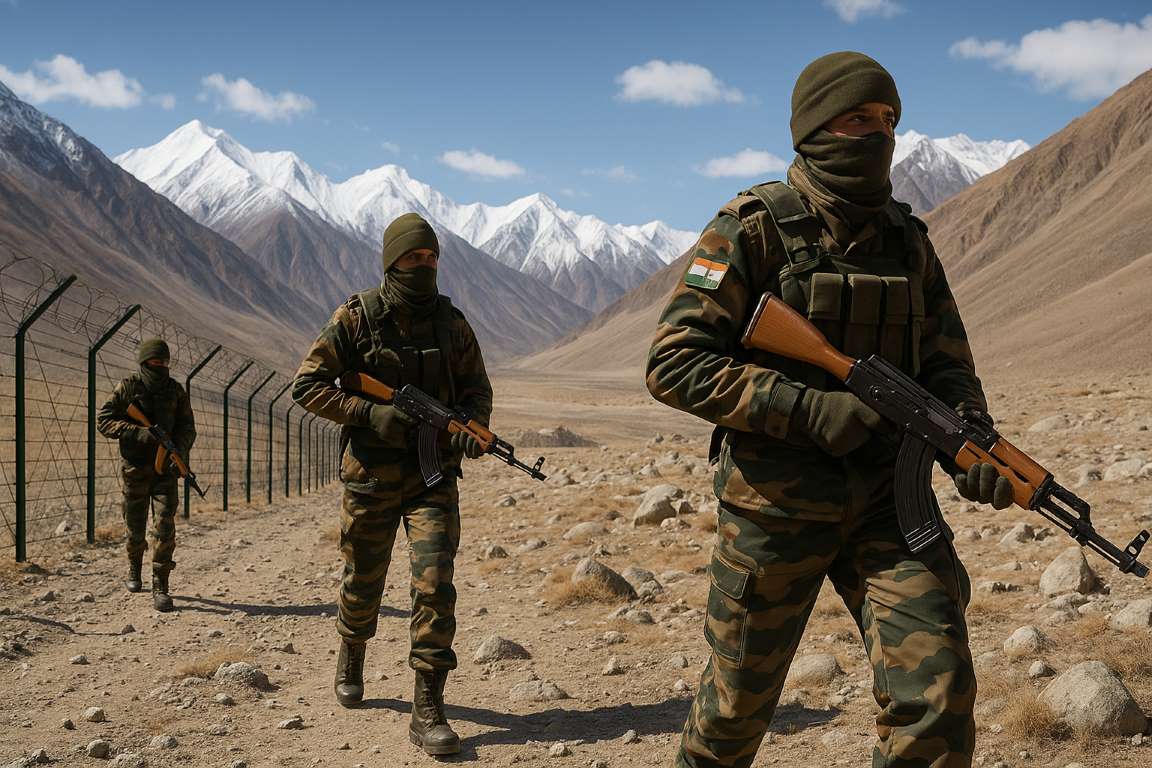
Deeper Meaning of Freedom Quote
Freedom Quote: “To be brave is to stand tall when the world tells you to kneel.”
The quote, speaks to the idea of courage in the face of pressure, opposition, or adversity. Here’s a breakdown:
- “To be brave”: Bravery isn’t just about fearlessness; it’s about choosing to act according to your values even when it’s hard or dangerous.
- “To stand tall”: This symbolizes dignity, confidence, and strength. It’s not just a physical posture but a metaphor for holding firm in your beliefs or principles.
- “When the world tells you to kneel”: This represents external pressure—whether from society, authority, or peer groups—trying to force you into submission, conformity, silence, or defeat.
Interpretation:
True bravery is shown when you resist giving in, even when everything and everyone is trying to make you do so. It’s about maintaining your integrity, voice, or identity under pressure.
A story inspired by Freedom Quote “To be brave is to stand tall when the world tells you to kneel.”
Freedom Story: “The Last Stand of William Wallace“

William Wallace in Chains:
The cold air bit at William Wallace’s skin as chains clinked around his wrists. London was gray and cruel that morning. Crowds gathered in the square, buzzing like crows over carrion. They came to witness a broken man beg for mercy. But Wallace, Scotland’s warrior, had not come to kneel.
Earlier that morning, a guard leaned in, whispering with a smirk, “Plead for the king’s forgiveness, and he might spare you.” The words slithered into Wallace’s ears like poison. Yet even as pain racked his body from days of torture, he looked the guard in the eye and replied simply, “I will not kneel.”

Crowd in Medieval Execution Square:
He remembered the Highlands—the green hills of home, the laughter of his childhood, and the blood he had spilled for freedom. More than that, he remembered why he had fought. Not for glory, but for the right of every Scot to live free. They had tried to silence him with steel and shame. Still, he stood tall.
As they dragged him into the execution square, murmurs rippled through the crowd. Some pitied him; others spat. English soldiers paraded him like a trophy, yet Wallace’s eyes did not flinch. They searched the crowd—not for help, but for hope.

Young Scottish Boy Holding a Wooden Sword:
He saw it in the eyes of a boy no older than he had been when the English killed his father. The boy clutched a wooden sword, carved clumsily but held proudly. Their eyes met. Wallace gave him the faintest nod. That was enough. The boy stood a little straighter.
“Bring him to his knees!” barked the executioner.
Two guards pressed down on his shoulders. Pain shot through his wounds, but Wallace resisted. Blood dripped onto the cobblestones, yet still, he refused to bend. He clenched his teeth. To be brave is to stand tall when the world tells you to kneel. And Wallace had never known how to do otherwise.
The magistrate stepped forward, offering one last chance. “Confess. Swear loyalty to the king. Your suffering will end.”
Wallace coughed, and blood stained his lips. He glanced upward, toward the gray sky. “I have only one confession,” he rasped. “I regret… that I cannot do more.”
Whispers swelled again. Even among the English, some faces changed—less certain, more ashamed.
Then came the worst of it—the drawn-out torture designed to break him completely. Metal tore flesh. Screams pierced the air. And yet, Wallace never begged. The crowd, once thirsty for blood, now stood in stunned silence.
Finally, the executioner approached for the final blow. But before it fell, the magistrate shouted, “Ask for mercy, and your agony ends!”

Wallace Yelling “Freedom!”:
Wallace turned his head, slowly, painfully. Every part of him cried for relief. But his spirit—his soul—stood taller than ever.
With one last breath, he shouted, “FREEDOM!”
The word echoed through the square like thunder. It cracked through fear, pride, and chains. It traveled beyond the stone walls of London, across fields and rivers, to the heart of Scotland.
Some wept. Others cheered. But in that moment, no one could deny the truth: they had tried to destroy a man, and instead, they had made him eternal.

Battle of Bannockburn:
Years later, Robert the Bruce led a ragtag army of Scots at the Battle of Bannockburn. The odds were against them—again. English forces stood tall in number and steel.
But before the charge, the Bruce turned to his men. “Do you remember Wallace?” he asked. They did.
He raised his sword. “They may have taken his life—but not his spirit.”
The Scots roared in reply. Then they fought—not just for land, but for the freedom Wallace had died for. And this time, they won.
Here is the ending of freedom story from the quote “To be brave is to stand tall when the world tells you to kneel.”
Moral of the story:
William Wallace never knelt—not to fear, not to kings, not to death. His body was broken, yes, but his defiance endured. He proved that bravery isn’t the absence of pain or loss. Rather, it’s the choice to stand tall, even when the world screams for you to bow.
In the end, Wallace’s courage outlived his life. His voice, silenced in flesh, became immortal in fire. Because to be brave—truly brave—is to rise above fear, even when it would be easier to fall.
And so, when history remembers William Wallace, it does not remember a man who died. It remembers a man who stood.
To explore more on stories and dive into related ideas, be sure to check out the other posts where we cover all sort of stories related to quotes. Stay tuned for more…..
To explore more on quote topics, be sure to check out the other topics where we cover all categories of quotes. Stay tuned for more…..

